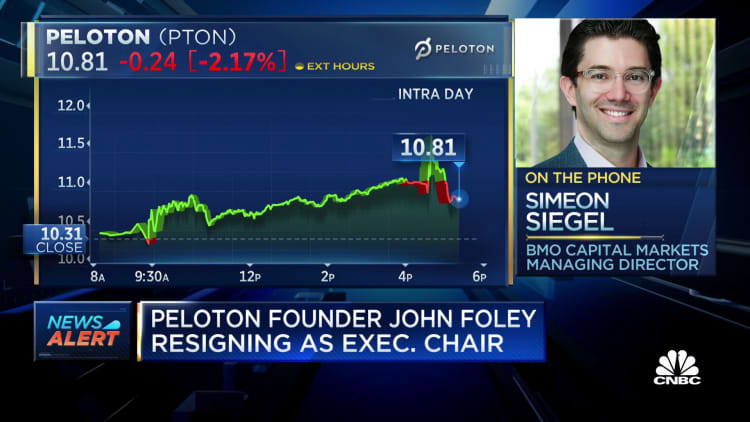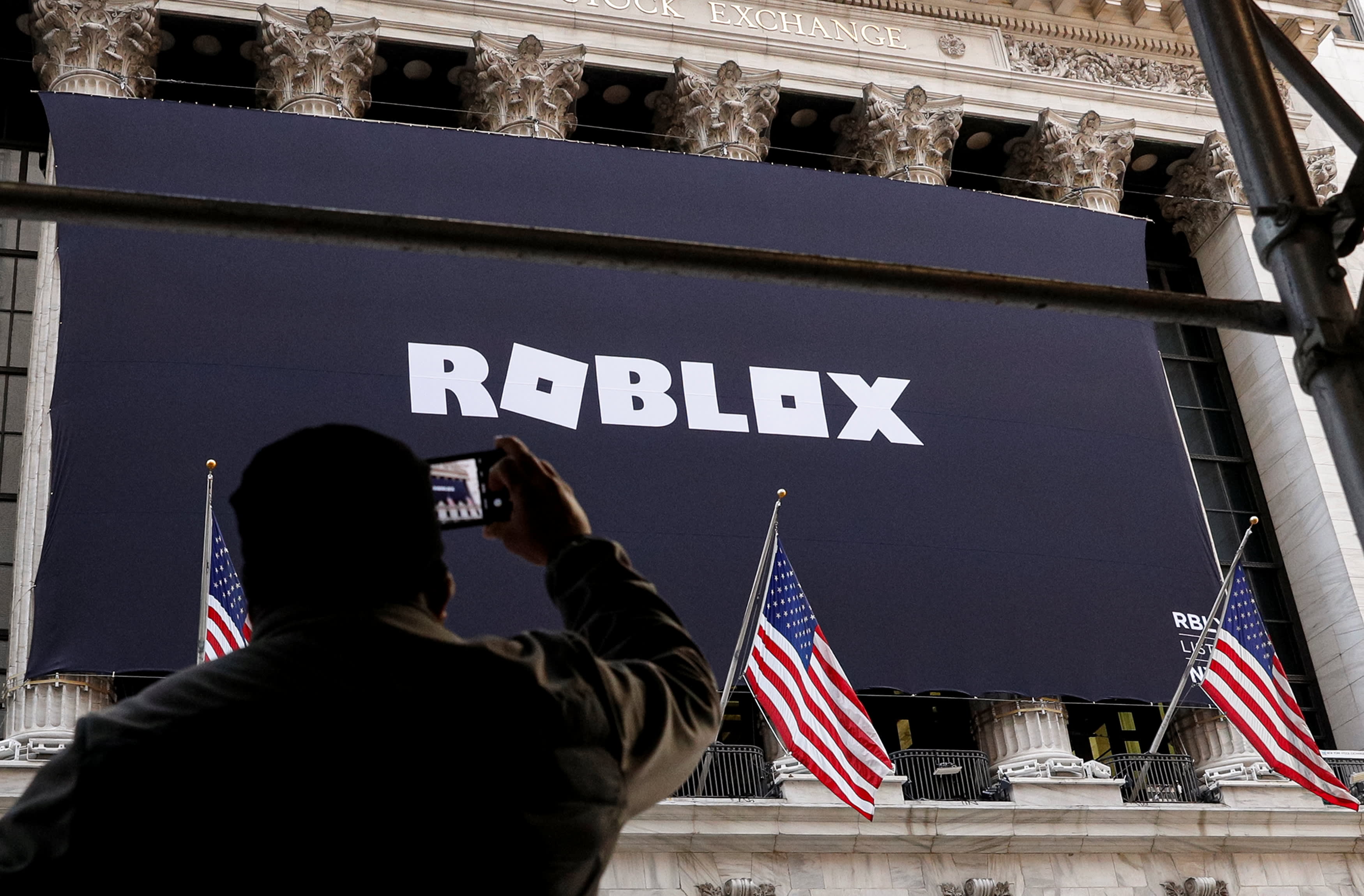Peloton co-founders John Foley and Hisao Kushi are leaving the company

Peloton on Monday announced the resignations of two of the company’s founders and another top executive, marking the end of an era for the struggling fitness-equipment company as CEO Barry McCarthy dramatically reshapes the business.
Co-founder and former CEO John Foley resigned from his position as executive chairman of the board effective Monday. Fellow co-founder Hisao Kushi will leave his post as the company’s chief legal officer Oct. 3, while Kevin Cornils, chief commercial officer, who has been with the company since 2018, will leave Sept. 23.
related investing news

Foley served as Peloton’s CEO for nearly 10 years before stepping down in February, coinciding with a large round of layoffs. McCarthy took the helm and Foley moved to the role of executive chair.
“There wouldn’t be a Peloton without John Foley or Hisao Kushi,” McCarthy wrote to Peloton employees. “Without John’s unwavering commitment to his dream, there wouldn’t be a passionate and dedicated community of nearly 7 million Peloton Members. I want to thank John for paving the way.”
John Foley, co-founder and former chief executive officer of Peloton.
Michael Nagle | Bloomberg | Getty Images
Peloton, which went public in 2019, thrived during the early days of the pandemic as gyms shut down and people purchased exercise equipment while working from home. Shares of the company hit a high of around $167 in October 2020. As of Monday’s close, however, the stock was at $11.05, down nearly 70% this year alone.
The moves announced Monday represent the latest wave of shakeups under McCarthy, who came to Peloton after tenures at Netflix and Spotify. He has pushed his Peloton turnaround plan since he took on the CEO role and realized the depth of the issues plaguing the company.
McCarthy’s changes have included the introduction of rental options for the company’s Bikes, certifying pre-owned Bikes for resale, selling Bikes and other products on Amazon, and pushing to expand Peloton’s digital subscriber reach.
McCarthy reiterated his commitment to the overhaul during a fireside chat in the Goldman Sachs Communacopia and Technology conference Monday. He said the company will soon begin selling products in yet-to-be-announced brick-and-mortar locations. The CEO also said Peloton is focused primarily on personalizing user experience, and McCarthy speculated about adding third-party content to Bike screens.
Karen Boone, the former president of Restoration Hardware, will take Foley’s place as chairperson of the board.
Kushi will be replaced by Tammy Albarrán, Uber’s chief deputy general counsel. Albarrán, as a partner at Covington & Burling, helped lead an investigation into Uber’s workplace culture before its 2017 IPO. “Albarrán oversaw Uber’s global legal teams and was a driving force behind the company’s cultural transformation,” McCarthy wrote in a Monday press release that called the changes at Uber “profound.”
Chief Strategy Officer Dion Sanders, who has overseen many of McCarthy’s changes, will take on the new title of chief emerging business officer as he assumes many of the responsibilities of Cornils, the departing chief commercial officer. The company also signaled commitment to its apparel and accessories endeavors, which will be officially overseen by Jen Cotter, Peloton’s chief content officer.
Foley, for his part, praised the management team he’s leaving behind and hinted at a new venture.
“Now it is time for me to start a new professional chapter,” Foley said in Monday’s release. “I have passion for building companies and creating great teams, and I am excited to do that again in a new space.”